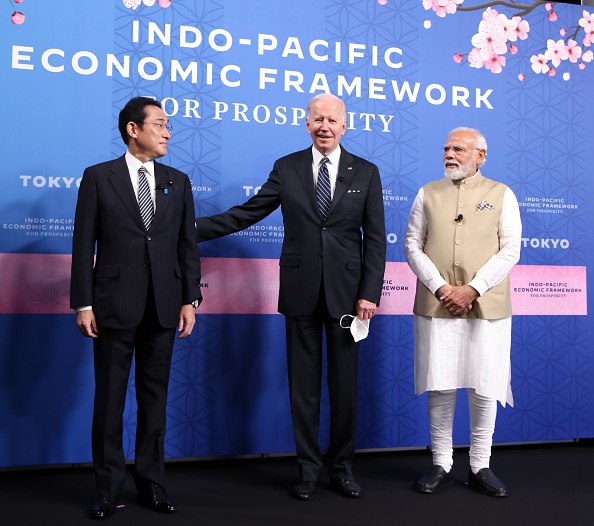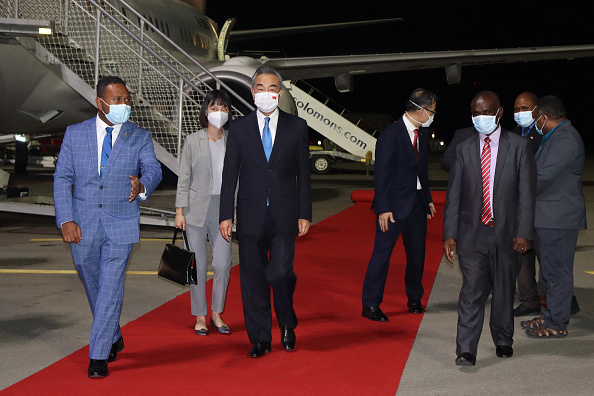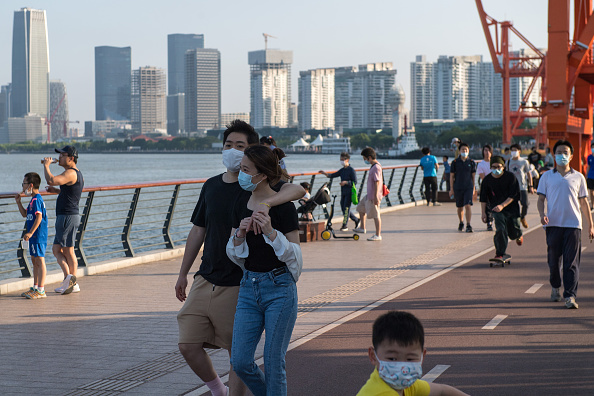
 Diplomatic Chills
Diplomatic ChillsThe U.S. and Taiwan have launched a new initiative to deepen economic engagement, specifically on supply chains, clean energy, labor rights and technology exports. The Biden administration said the "U.S.-Taiwan Initiative on 21st-century Trade" would "develop an ambitious road map" for negotiations in areas from agriculture and digital trade to climate.
The talks come a week after U.S. President Joe Biden unveiled his administration's long-awaited regional economic plan, the 13-country Indo-Pacific Economic Framework (IPEF), which excluded Taipei, despite pressure from a bipartisan group of 252 U.S. House and Senate lawmakers that urged Biden to include Taiwan to demonstrate support.
Taiwan's trade representative John Deng hailed the initiative as a "historic breakthrough" for Taiwan as it opens up space for more trade and economic cooperation with the U.S. However, the news has been sharply criticized by Beijing. China's Commerce Ministry voiced "strong objections" to the U.S.-Taiwan initiative on Thursday, saying Washington should "prudently handle its economic and trade relations with Taiwan region and avoid sending wrong signals to 'Taiwan independence' forces."
Biden's recent trip to Asia sent further chills through the U.S.-China relationship, as he worked to strengthen relationships in the region, most notably with leaders of the Quad alliance of America, Japan, India and Australia.
Read more in "Biden's Asia Maneuvering to Offset China," by David Shambaugh, a Gaston Sigur Professor of Asian Studies and Director of the China Policy Program at George Washington University.
 Geopolitical Intentions
Geopolitical IntentionsWhile President Biden solidified his ties with the Quad leaders, Chinese Foreign Minister Wang Yi traveled to the Pacific to visit eight countries, including the Solomon Islands, as Beijing seeks to strengthen its military, economic, and diplomatic engagement with a region that has traditionally retained closer ties with the United States and Australia.
Ahead of the trip, Beijing officials had circulated a draft agreement between China and 10 island nations covering matters from security to fisheries, sparking concerns from some Pacific nations that the deal would generate friction with the United States and its allies. The agreement, which was leaked to the press, would have allowed China to train local police, become involved in cybersecurity, expand political ties, conduct sensitive marine mapping and gain greater access to natural resources on land and in the water.
For this larger agreement, Wang walked away empty handed from the meeting, although the nations did agree on five areas of cooperation, including economic recovery in the wake of the Covid pandemic, and new centers for agriculture and disaster. However, the agreement did not include security cooperation.
Following the meeting, Wang held a press conference saying "Don't be too anxious and don't be too nervous, because the common development and prosperity of China and all the other developing countries would only mean great harmony, greater justice and greater progress of the whole world."
Read more in "Why U.S. Worries About Pacific Islands," by Yang Wenjing, a Chief of U.S. Foreign Policy at the Institute of Contemporary International Relations.
 Laying Foundations
Laying FoundationsShanghai government officials began easing Covid-19 lockdown restrictions earlier this week, and residents are celebrating the first taste of normalcy many have experienced since the strict measures began two months ago. Local officials declared victory over the virus and issued a letter online proclaiming the lockdown's success and thanking citizens for their "support and contributions."
But as citizens relish in the return to regular life, China's State Council is working to address the pandemic-ravaged economy. The central government's top policymaking body released a 33-point stimulus plan last week, vowing to promote a speedy recovery in Shanghai and the broader national economy. Further details were released on the package this week, covering fiscal and monetary policies, investment and consumption, food and energy security, supply chain stability, and people's livelihoods.
The plan also ordered state-owned policy banks to set up an 800 billion yuan (U.S. $119.6 billion) line of credit for infrastructure projects, with the hopes that construction will help stimulate the economy.
The State Council said separately that local governments and agencies should "effectively stabilize the economy in the second quarter" and lay a "solid foundation" for the latter half of the year. The statement also said that economic activity should be maintained at a reasonable growth rate ahead of the Party's 20th Congress in the fall.
Prepared by China-US Focus editorial teams in Hong Kong and New York, this weekly newsletter offers you snap shots of latest trends and developments emerging from China every week, while adding a dose of historical perspective.
- 2022-05-27 Competing Visions
- 2022-05-20 Common Ground
- 2022-05-13 Bilateral Interests
- 2022-05-06 Vying for Mutual Benefit
- 2022-04-29 Seeking Relief
- 2022-04-22 Tipping Point
- 2022-04-15 “Persistence is Victory”
- 2022-04-08 No Divorce
- 2022-04-01 Auditing Accountability
- 2022-03-25 Playing Policy
- 2022-03-18 One Hand Cannot Clap
- 2022-03-11 Political Forecast
- 2022-03-04 Competitive Advantage
- 2022-02-25 A Sovereign Tightrope
- 2022-02-18 Strategic Disengagement
- 2022-02-11 In the Thick of It
- 2022-02-04 Year of the Tiger
- 2022-01-28 Zero-Sum
- 2022-01-21 An Uncertain Future
- 2022-01-14 Digital Advances